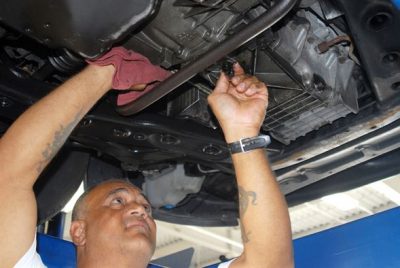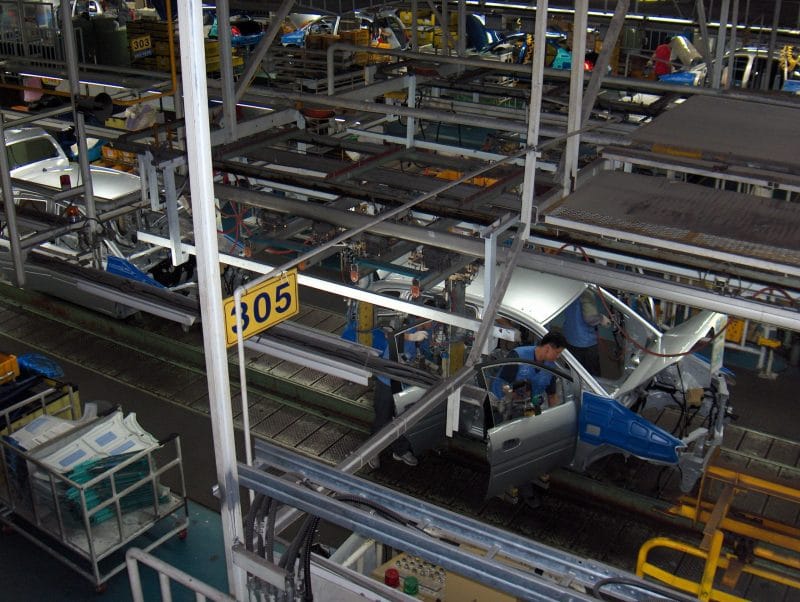 A car recall is announced when a car maker finds a problem that needs to be fixed. These recalls are sometimes prompted from complaints of car owners or accidents that have occurred. Most of the time, the manufacturer issues a car recall through NHTSA and informs car owners. Companies recall cars to save themselves from a lot of litigation costs and possible compensation claims. The manufacturer might be in hot water if the defect went uncorrected and resulted to serious injuries.
A car recall is announced when a car maker finds a problem that needs to be fixed. These recalls are sometimes prompted from complaints of car owners or accidents that have occurred. Most of the time, the manufacturer issues a car recall through NHTSA and informs car owners. Companies recall cars to save themselves from a lot of litigation costs and possible compensation claims. The manufacturer might be in hot water if the defect went uncorrected and resulted to serious injuries.
A number of product recalls in the automobile industry were featured in September.
The following recalls are arranged according to alleged defective parts. These parts are important in their role to ensure the safety of drivers and road users.
Table of Contents
Accelerator sensors
In Tokyo, Nissan Motor Co. recalled 908,900 vehicles Thursday for defective accelerator sensors that could cause engines to stall. The sensors can malfunction, causing the vehicle to slow down and at times stop. Automaker identified the affected models as the Serena minivan, Infiniti M luxury model, and X-trail sport utility vehicle.
Airbag systems
The airbag system of the 2003-04 model year Odyssey and the 2003 Acura MDX was the object of recent complaints in Tokyo for opening up unnecessarily. It was discovered that the computer chip for airbag deployment was responding to electrical interference. Honda plans to correct this airbag problem by installing an electrical noise filter, hence the recall. 318,000 Odyssey minivans in the U.S. and 63,400 Acura MDX sport utility vehicles in several nations will be recalled for repairs. Honda is also recalling 23,300 Odysseys in Canada. According to Honda, there were no reported accidents or crashes prior to the recall.
Brake systems
Brake failure prompted BMW to voluntarily recall over 76,000 2012-2014 models. This includes 3 Series, 5 Series, X1, X3, and Z4 models. These models are pulled from the market due to a possible loss of power brake assist that could result in the vehicles failing to stop. The recall affects 2012-2014 models equipped with either the N20 or N26 engine produced from May 2012 to August 2013. Until recall repairs have been performed, BMW dealers will discontinue selling or delivering any affected vehicles in their inventories.
According to the report, the brake failure was due to restricted oil supply from the intake camshaft to the brake vacuum pump, which may cause the brake vacuum pump to fail, resulting in a loss of power brake assist. While the hydraulic brakes will still function, the driver must much apply greater pedal pressure, and the distance required to stop the vehicle will increase.
BMW has reported three minor accidents with no confirmed injuries. It was recommended that drivers who encounter a braking problem must pull the emergency brake and apply as much brake pressure as possible. Also, if your BMW has an electronic parking brake pull up and hold the switch to engage the brake. Drivers should then park in a safe location and contact BMW Roadside Assistance.
It was also disclosed that BMW will begin notifying owners of the recall until November if there is no official announcement from NHTSA. Repairs will be performed free of charge, BMW added.
This voluntary recall might be prompted by an initial investigation conducted by NHTSA that BMW promised to cooperate with. This investigation was based on the complaints of 4 BMW car owners on the braking system of the 2013 models. According to the car owners, there is an observed feeling of a hard brake pedal, increased braking effort, and longer stopping distances. Moreover, it was learned that three of the cases were traced by dealers to the vehicles’ vacuum pumps.
Brake pedals
Other car brands in China also pulled some of their products. South Korea’s Hyundai is recalling 64,795 Hyundai and Kia cars for a repair to brake pedals. Kia also recalled 40,865 cars for the same reason.
Electric power steering
BMW Brilliance began recalling 143,215 5-series cars produced between 2009 and 2012 due to a problem related to their electric power steering system.
Brake switches
Hyundai and Kia said last week they were recalling about 660,000 vehicles in South Korea to fix a faulty brake switch, with further recalls in other countries possible. The recall, which involves models such as Hyundai’s Genesis and Azera large-size sedans and Kia’s Forte compact, extends a problem that has already affected over 2 million cars.
It is considered ideal for buyers of second-hand vehicles to check the comprehensive auto recall information to know if there are any problems that have been reported by the National Highway Traffic Safety Administration.
Taillights
BMW in China recalled its 75,832 of the BMW 5 Series in order to fix the faulty socket adapters for tail lights.
In Detroit, BMW is reported to be recalling 134,000 5-Series cars in the U.S. because rear lights can fail. The recall affects 528i, 535i, 550i, and M5 cars from the 2008-10 model years.
Increased electrical resistance is said to damage connections to the lights that could result in loss of tail, brake, turn and back up signal light according to the National Highway Traffic Safety Administration. It was disclosed by BMW that the cars will give drivers visual and audible warnings if the problem occurs, and unaffected rear lights will display to warn drivers behind the cars. BMW added that owners will be notified next month (October 2013).
Dealers will replace part of the rear lamp connections at no cost to customers. Owners can call BMW at (800) 525-7417.
Buyers should always check for product recalls. This will prevent you from suffering from an accident as a result of uncorrected manufacturer defects. As a responsible motorist, have your car regularly checked for wear and tear. Be sensitive to the performance of your car and take time to know common indicators that will tell you that your car has some defective parts.
You should also be aware of the car maintenance schedule and what to check on a regular basis. Most importantly, read Good Guys Injury Law’ preventive maintenance guide.
There is wisdom in old age that says, “An ounce of prevention is better than a pound of cure.” Fix the defects in your car now before it can cause more problems tomorrow. Keep yourself well-informed by visiting websites that give you updated information. Share what you know with your friends and relatives on car safety. Be safe and share the road.
Photo courtesy of US Air Force Connie Hempel
